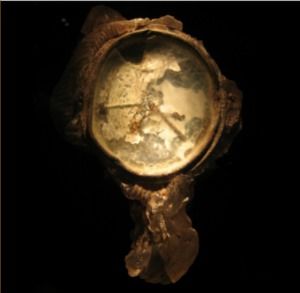
Humanist and technoscientific notions of progress have been (mis)used to classify human and nonhuman life forms into hierarchical categories, thereby reducing the complexities of life stories into a linear account of development and innovation. At the same time, critical reflections on key concepts of modernist, Eurocentric and industry-driven concepts of time and historicity and, more forcefully perhaps, new findings in evolutionary biology and physics, have produced alternative narratives, sometimes with a reconsideration of premodern understandings of temporality like, for example, Gilles Deleuze ’s rereading of Leibniz in The Fold.[1] The modernist conception of History (with a capital H) as both an empirical reality and a specific disciplinary and disciplining knowledge [2] has thus become just one possible manifestation within a plurality of histor ies conditioned by socio-cultural particularities that honour the experience of bodies that, voluntarily or not, live outside re/productive timelines, for example.
An increasing number of researchers as well as artists are no longer interested in the taking and making time and space as human universals but in genealogies, intersections, “multiple modernities”[3] and the coexistence of non-simultaneous phenomena in the era of globalization, asymmetrical power relations and technoculture. Moreover, post-anthropocentric thinking and creativity, fostered in posthumanist discourse (including new materialism, speculative realism, object-oriented ontology, neocybernetic systems theory, etc.), also increasingly attends to nonhuman temporalities and how these are entangled, often in conflicting ways, with human time. Such considerations include the vexing question of how emancipatory goals of progressive social trans/formation and justice can be envisaged, let alone obtained, if we can no longer ground our theories and political practices in enlightened narratives of humanist progress and liberation.
